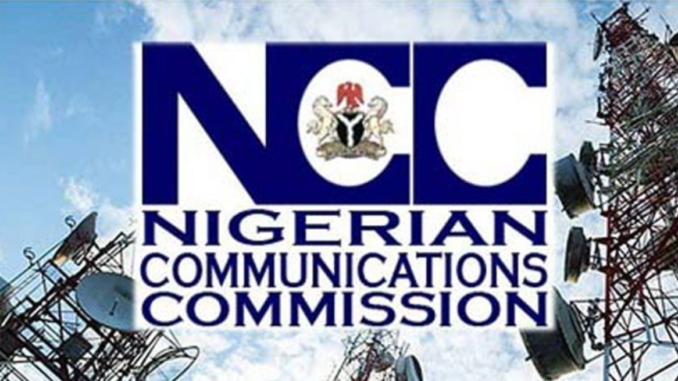
THE commencement of a directive by the telecommunications industry regulator that operators must roll over customers’ unused data is long overdue. New rules by the Nigerian Communications Commission last week require data service providers to roll over subscribers’ unused but pre-paid data onto the next data subscription. What remains is a rigorous enforcement of this and other rules and a greater commitment to consumer protection by the agency.
Although long in coming, the rule seeks to address one of the many oppressive practices mobile network operators and other Telcos inflict on Nigerian subscribers. From June 26, however, operators and other providers must add a subscriber’s un-utilised data to his or her next subscription cycle. Hitherto, the country’s 103.15 million data users (as of May 2018, according to the NCC website), were often frustrated and short-changed by service providers: their unused data balance was forfeited as soon as the subscription validity period expired. Standard practice worldwide is to roll over unutilised data, but Telcos have been taking undue advantage of lax regulation and the yearning of Nigerians for voice and data services to rip them off. A N5m fine will henceforth be imposed on each subscriber whose data is not rolled over and N500,000 each day following the first default date.
This is a fitting penalty for recalcitrant operators. But, welcome though it is, the country’s 103 million strong mobile internet users as of May this year, including smartphone users, are sceptical of the willingness of the NCC to walk its talk by rigidly enforcing compliance.
Consumer complaints have not abated over the years; instead they have been mounting even as telephone and internet usage has been rising exponentially and operators roll out new value added services.
From less than 500,000 combined active telephone lines, the mobile phone segment alone has risen exponentially from a few thousands in 2001 to hit 244.8 million lines by May this year, according to the NCC, re-affirming Nigeria as seventh in the global ranking of countries with the largest number of mobile telephone users. The number of internet users in the country by July 2016 was put by Internet Live Stats at 46.1 per cent of the population. This rose to 98.39 million users (50.2 per cent of the population) by December 2017, a report by Internet World Stats revealed. Teledensity, the number of active telephone subscribers per 100 inhabitants, at 116.09 by May, is one of the highest in the world.
With the exponential rise in customer base and patronage, Nigerians deserve better services than they are presently receiving. Apart from the daylight robbery of not rolling over unused data that the NCC has now woken up to, consumers also complain of data and airtime depletion, unauthorised subscription and auto renewal to value added services they never subscribed to and refusal by the networks to terminate such unsolicited services even after opting out. Some of the services were mentioned at the NCC-brokered telecoms parliament. Some of the numbers mentioned include 30801 and 4100. Apart from poor service quality, the NCC should address complaints of consumer frustration over its 2442 Do Not Disturb shortcode. Whereas its Legal and Regulatory Services Department, in May 2016, barred MNOs from sending out unauthorised text messages to subscribers, beginning July 1, 2016, with a N5 million fine for infraction and N500,000 per day for as long as the infraction lasts, many report being ignored when they use the DND. There were 13,880 complaints of abuses by MNOs in the first quarter of 2018, down from 17,247 complaints in Q4 2017.
To be fair, since liberalisation in 2001, the telecoms sector has been a major investment draw into the country, hitting $70bn in 2017, $2bn higher than the $68bn of 2016. It contributed N1.54tn to Gross Domestic Product in Q2 2017, almost 10 per cent of the economy. It has been the second biggest magnet for foreign direct investment after the oil and gas sector and has impacted on other sectors as well.
However, the regulator should be stern in the interest of the economy: consumers should not be deprived of disposable income that can be put to other uses through the abuses of service providers. We need to see more of an activist NCC that rightly came down hard on MTN in 2015 with an initial $5.2bn fine for issuing 5.2 million unregistered Subscriber Identification Modules. Countries jealously guard against security breaches, consumer privacy/rights infringement, violation of trade rules and financial scams, imposing heavy fines on offending Telcos. The European Union imposed €2.7bn on Google for search engine manipulation in 2017, also fining Facebook, YouTube and Google in a separate action for allegedly facilitating hate speech. Here in Africa, Communication Authority of Kenya hit Safaricom, the country’s leading Telco, with a $2.6m fine for poor service delivery and Rwanda hit MTN with $8.5 million for violating rules on IT services.
Merely rolling rules out will not do: the NCC should follow through with tough enforcement. It should start with its DND, which many have complained are either sparingly observed or not for long. The regulator should work out an effective mechanism to refund airtime and data to consumers logged on to and billed for services they never subscribed to.
The NCC should continue to invest in cutting edge technology, human capacity and public enlightenment. Its role as a facilitator of Nigeria’s major sectoral success story demands that it should not drop its guard but enforce the rules and innovate to achieve national aspirations in the telecoms sector.
END

Be the first to comment